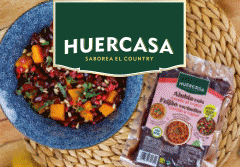Between May and August 2025, Peru shipped 71,957 tons of blueberries, a 137% increase compared to the same period of the previous year. However, the export value only grew 44%, reflecting the decline in average prices. In July, initial quotations were 38% below 2024 levels, and in August averaged US$5.95 per kilogram, 41% less than in the same month last year.
The increase in Peruvian supply coincides with competition from countries such as Mexico, Morocco, and South Africa, intensifying pressure on traditional markets in the United States and Europe, which are beginning to show signs of saturation. This imbalance has reduced exporters’ profit margins and threatens to replicate the dynamics previously observed in avocados.
Price challenges are compounded by logistical issues, particularly congestion at key ports such as Callao, which affects the distribution and quality of the fruit. During peak campaign weeks, around week 42, shipments could exceed 20,000 tons, further increasing pressure on markets and logistical infrastructure.
RELATED NEWS: High expectations for Peruvian blueberries
It is projected that by the end of 2025, Peru will surpass 400,000 tons of blueberries exported, with volume growth of around 25%, but a much more moderate increase in value, between 8% and 13%. Abundant supply and lower prices limit the overall value growth of the sector.
In this context, market diversification and product differentiation are consolidating as key strategies. Asia, with China as the main target, represents an opportunity for larger-caliber blueberries and premium presentations, while the opening of the Indonesian market reinforces the international expansion strategy.
Genetic innovation and varietal reconversion also emerge as decisive tools, enabling producers to access higher-value niches with fruit that offers better flavor, firmness, and shelf life. The challenge for Peru is no longer just producing more, but achieving a balance between volume and value that guarantees a sustainable and profitable business model.




















